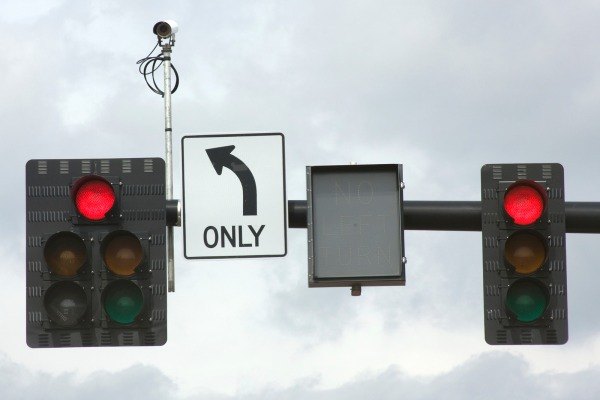Support For Automated Enforcement Only So-So Among Americans
While use of red-light and speed cameras are on the wane, support for automated enforcement depends upon where and who the constituent is.
According to Autoblog, a study by the Insurance Institute for Highway Safety found 70 municipalities have dropped red-light camera programs in their jurisdictions over the past 30 months. Said programs peaked at 540 communities in October 2012, now since fallen to 461, and while 112 to 140 programs speed camera programs were initiated in the same 30 months, those are now beginning to stumble.
While critics — and the studies that back their statements — have found red-light and speed cameras marginally improve safety at best and are thought to be nothing more than revenue generators, a survey by FindLaw.com found that 61 percent of women and 51 percent of men support red-light cameras, while 53 percent of women and 43 percent of men would support speed cameras, as well.
Geography plays into support as well: 62 percent of residents in the Northeastern United States support speed cameras, while 65 percent support red-light cameras. In comparison, only 33 percent of residents in the Midwest — where opposition to automated enforcement is highest — support the former, 49 percent support the latter.
That said, the voting booth may be the best indicator of support for the cameras: 31 out of 34 referendums in 25 years have shot down automated enforcement, including four ballot measures last November whose disapproval/approval ratio came to approximately 3:1 opposed.
Seattle-based writer, blogger, and photographer for many a publication. Born in Louisville. Raised in Kansas. Where I lay my head is home.
More by Cameron Aubernon


































Comments
Join the conversation
A nav unit is only as good as its database, and my experience is that many cameras are not listed. Further, if you pick a city that has had red light cameras for a decade or more and then look at the number of tickets it has issued each year you will see no decline. In other words, despite smart phones, apps, navs, etc., the motoring public is getting just as many camera tickets as in times past. If you stick close to home you're at little risk from red light cameras; you know where the cameras are in your neighborhood, and in more locales the fine is just $50 or $100, like a big fat parking ticket. Just don't travel to California, where most programs focus on rolling right turns, the fine is $500.00 and still growing - and the ideal target is visitors from out of town. If you must go to California: If you are flying in or out of SFO, do not drive on nearby Millbrae Avenue between El Camino, the BART station, and the 101 freeway, or on the offramp from the southbound 101, because in October and November the City of Millbrae issued 2397 red light camera tickets (worth $1.2 million in fines) in that half mile stretch, nearly all for rolling right turns. If you have friends who will be going thru SFO, or renting a car there, warn them about the trap. Down South, the Beverly Hills council just voted to expand their already-punishing camera system by 2/3. Neighboring Culver City is adding more right turn enforcement to their system. If you plan to visit California, be prepared. Do a search on snitch ticket and another search on red light camera no consequence. Because just one of California's camera tickets can ruin your whole day.
The poll I'd be interested is the one that takes place in the voting booth. Whenever these things get on the ballot, they always seem to get shot down. Seriously, has there ever been a plebiscite that says, "yes, we want the cameras"? I'm not so much against red light cameras in theory, it's just that it fails in practice. Yellows get shorter, patterns get trickier, rules change, all in an effort to enhance revenue at the expense of safety. So cynicism, and the greater risk of rear-end accidents, has me giving them the thumbs down.
Seems to me that the bottom line is folks want to break the law without consequence i.e. - I want to drive the way I damn well want to and you aren't gonna change that. S-T-O-P is not an acronym for Slide Through Often Please; Speed Limit 75 is not 85 cause everyone knows they don't give tickets for 10 over. The other option is to remove all traffic controls thus no laws are broken. And on and on and on . . .
I support the idea of cameras -- in theory: * If the cameras were actually put up and run by engineers in the local jurisdiction. * If the stop lights or speed limits weren't gamed to increase the likelihood of infraction. * If there was a human reviewing the evidence before they went in the mail whose pay was not tied to the number of citations issued. * If there was a proper dispute process. * If the local jurisdiction was honest about the purpose of the installation. In the real world that's too much to ask for, so I don't support them in practice. Which is a shame, because in the three years I've spent in Wilmington I've come to believe that Delaware drivers believe red lights and stop signs are only suggestions.